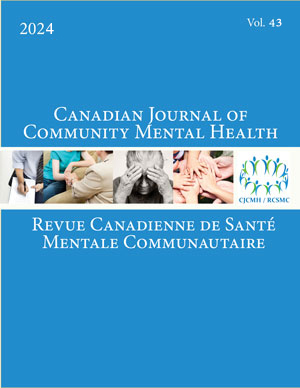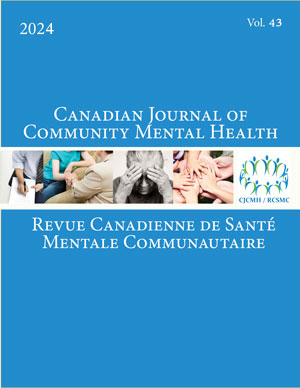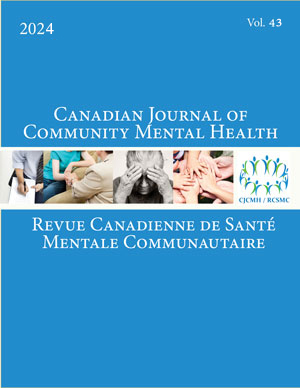Volume 35 • Number 1 • February 2016
Articles
OPEN ACCESS
There is a growing body of research examining the experiences of homeless older adults in Canada. Fourteen participants (11 males & 3 females) ages 46 to 57, recruited from the At Home / Chez Soi project in Winnipeg, completed individual semistructured interviews exploring their experiences of homelessness. Most participants reported lifelong intermittent homelessness. We identified 5 main themes that captured the experience of homelessness for older adults: pathways to homelessness; controlled lives; centrality of social relationships; shame and desire for self-reliance; and the challenge of disentanglement from the cycle of homelessness. This study provides insight into the experiences of homeless older adults in Canada. Findings suggest a need for policies and programs to meet the unique needs of homeless older adults.
OPEN ACCESS
Interorganizational collaboration is increasingly used to address social issues, but it can fail when the underlying relationships become damaged. This study explores the qualities, characteristics, and processes that can fracture collaborative relationships and the consequences of failing to correct these fractures. Using a qualitative design, interview data were collected from 19 executive directors of Canadian human service organizations. The findings highlight several challenges to collaboration and show the importance of exploring negative outcomes of inaction. An additional aim of this study is to provide strategies for building and nurturing collaborative relationships.
OPEN ACCESS
Three mental health approaches with potential relevance to rural Canada were reviewed: telepsychiatry, integrated mental health models, and community-based approaches. These approaches have been evaluated in relation to their cost-effectiveness, comprehensiveness, client-centredness, cultural appropriateness, acceptability, feasibility and fidelity; criteria that may vary amidst rural contexts. Collaborative approaches to care, technologies fully integrated into local health systems, multi-sectoral capacity-building, and further engagement with informal social support networks may be particularly promising strategies in rural communities. More research is required to determine rural mental health pathways among diverse social groups, and further, to establish the acceptability of novel approaches in mental health.
OPEN ACCESS
We aimed to develop and conduct a feasibility trial of a brief intervention to target proximal risk factors (i.e., cognitive vulnerability) to prevent depression, as well as to improve understanding of the mechanism of change in our prevention program by the incorporation of the theory of planned behaviour. Thirty-seven university students participated in an open feasibility trial of a brief CBT-based depression prevention program. Participants completed an online questionnaire pre- and post-intervention. Results indicated that participants experienced pre- to post-intervention improvements in their self-perceived capacity to learn strategies and an increase in positive affect, demonstrating its preliminary effectiveness in reducing risk factors for depression.
Practice Innovations
OPEN ACCESS
The Family Navigation Project provides an innovative navigation service that supports families who are struggling with navigating the complex youth mental health and addictions system. Navigators engage one-on-one with families to help them access timely and specialized care for youth experiencing mental health or addictions concerns.










